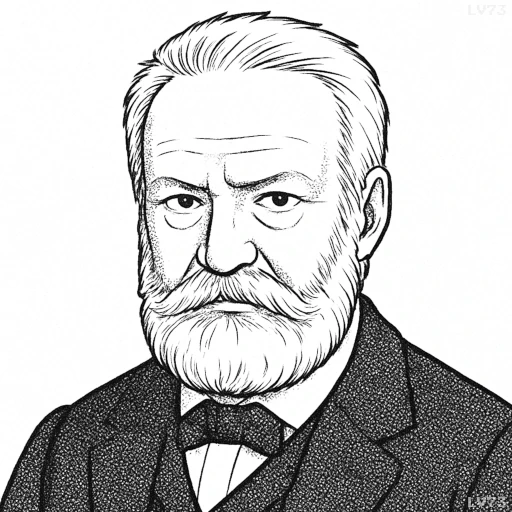“Intelligence is the wife, imagination is the mistress, memory is the servant.”

- February 26, 1802 – May 22, 1885
- Born in France
- Author, poet, playwright
table of contents
Quote
“Intelligence is the wife, imagination is the mistress, memory is the servant.”
Explanation
In this quote, Victor Hugo personifies the different aspects of the mind in a way that assigns each a distinct role, using a metaphorical relationship structure. Intelligence, represented as the wife, is the foundation of reason, logic, and sound judgment. As the wife, intelligence is essential, stable, and integral, the primary force in shaping thought and decision-making. Imagination, portrayed as the mistress, is depicted as more playful and unbound by rigid logic. Imagination allows for creativity, vision, and the ability to think beyond the limitations of the present, playing a secondary but essential role in the creative process. Lastly, memory, represented as the servant, acts as a tool that serves the mind by storing and recalling past experiences and knowledge, making it indispensable but subordinate to the higher faculties of intelligence and imagination.
Hugo’s metaphor suggests that while all three aspects of the mind are necessary, their roles and priorities are different. Intelligence is the more rational, consistent force, while imagination allows for the freedom and creativity that often lead to innovation and discovery. Memory, on the other hand, supports and enables both intelligence and imagination by providing the necessary foundation of experience and learning.
In modern terms, this quote speaks to the balance between reason, creativity, and experience in shaping human thought and action. It suggests that while intelligence should guide us, imagination opens up possibilities, and memory allows us to build upon what we already know. The quote encourages us to recognize the value of each aspect of the mind, understanding their distinct but complementary roles in our intellectual and creative lives.
Would you like to share your impressions or related stories about this quote in the comments section?




